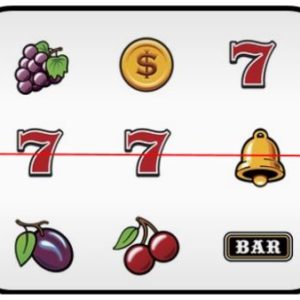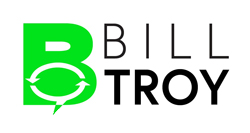
One of the things I dig into in “Clicksand” is how similar the concepts behind many online marketing tools are to those used in casino gambling. The dashboards and stats used for online marketing reporting are supposedly there to help business owners make better decisions, but in reality, many of the reports are just designed to keep those business owners spending more and more money—just like casinos find ways to encourage gamblers to keep wagering more.
The “near-miss” response
Let’s start with something casinos take advantage of in our brains, called the “near-miss” response. Near-miss response describes how your brain reacts when you get close to succeeding at a task.
If you perform some physical activity, like shooting a free throw, your brain will give you a little encouragement in the form or a dopamine if the ball gets close to going in—even if it doesn’t actually go through the hoop. This is because the more you practice, the better you’ll get, and your brain is wired to encourage you to keep trying to get better. This response is left over from prehistoric times when a task like throwing a spear accurately at a mastodon could mean the difference between eating or starving.
Most of us don’t need that type of skill to stay alive in the modern world, but our brains are still wired to reward us when we “get close” anyway. This is something casinos take advantage of in myriad ways. One example is shown below.
Compare the two different results from a slot machine spin:

Your brain will automatically perceive that the spin on the right was “almost” a win, because it looks as if you were close to matching three items. In reality, of course, both are simply losses. There is no “close” in a slot machine. You win or you lose. And you can’t get better at it by doing it over and over again like you would if you were practicing shooting free throws.
But your brain is wired to react to the slot machine result on the right just as it would if you had shot a free throw and it rolled around the rim and just barely missed. In both cases, it will encourage you to try again. After all, you were so close!
One of the ways casinos enhance the near-miss response is by providing you additional information that, while technically useless, gives your brain more opportunities to see near misses. That’s why you see more lines on the slot machine than you need.
In the example above, the top and bottom rows are meaningless in terms of whether you win or lose the spin. But seeing that 7 on the top row makes your brain perceive how “close” it had been to landing on your row. That extra 7 is what really puts your near-miss response into overdrive. Casinos know that giving you more (useless) information will encourage you to keep spending. Online marketers know the same thing.
Marketing dashboards and slot machines
Online marketing dashboards provide an overload of information, much of which is useless—to you as a business owner, anyway. It’s very useful for the online marketing company because it encourages you to keep spending.
Take the simple graph below. If I asked you what the most successful time period was for this campaign, your brain would most likely settle on weeks 4 and 5. That’s when both lines are up toward their highest levels at the same time. Even if (and especially if) you know nothing about what is represented by the lines on the graph, your brain will automatically see that pattern. It’s a hard-wired response.

In the same way that you have to fight your brain’s natural tendencies when making decisions in a casino, we teach clients all the time that they have to fight their brain’s natural tendencies when using online marketing tools. Those tools are designed to seem helpful, but in reality, they are developed mostly to encourage business owners to keep spending ever more as they continue to chase that big win that’s always just out of reach. Just look at how close you are!
If you’re concerned you might be falling for the near-miss response—always feeling as if you’re close to figuring it out but never quite reaching your goal—I’m always happy to help you evaluate whether you’re caught in the Clicksand trap.
